In his first major foreign policy speech, U.S. President Joseph Biden declared that the U.S. must
“start with diplomacy rooted in America’s most cherished democratic values.” To date, however, democracy and human rights have not factored as prominently in the Biden administration’s handling of U.S. alliance relations in Asia. Although the administration’s Summit for Democracy in December aims to spur democratic renewal at home and abroad, U.S. policymakers will find it particularly challenging to implement a robust human rights and democracy agenda in the Indo-Pacific region for three reasons.
Underwhelming support for the summit in Asia relative to Europe
First, in contrast to European voices that have generally praised Biden’s call for a democracy summit, Washington’s allies and partners in Asia have been relatively silent about the Summit. The Quad, whose members include the United States, Japan, Australia, and India — collectively forming a “democratic security diamond” in the Indo-Pacific — has offered aspirational statements to “build democratic resilience in the Indo-Pacific.” However, the Quad has yet to develop a more concrete democracy agenda that might complement Summit goals. Only in Australia has there been some sustained public discussion supporting the Summit for Democracy.
Among other U.S. Asian allies, South Korea, despite its status as a consolidated democracy, has not expressed much enthusiasm either. This may be in part due to the still ill-defined objectives of the summit. However, Seoul has generally remained wary of joining coalitions and summits that might be construed by Beijing as anti-China in nature. Meanwhile, the Association of South East Asian Nations (ASEAN), whose members include a mix of democracies and non-democracies, has never been particularly forward leaning on human rights and democracy issues, given the union’s commitment to principles of sovereignty and non-interference.
Presidential elections in the Philippines and South Korea
Second, upcoming presidential elections in the Philippines and South Korea in March and May 2022, respectively, will affect how much Washington can press its allies on sensitive political issues. The authoritarian turn in Philippine politics has not factored significantly in U.S.-Philippine relations despite a potential investigation at the Hague launched against President Rodrigo Duterte in connection to his drug wars and the extrajudicial killings of thousands of Filipinos. Likewise, the Biden administration has not pushed the South Korean government on North Korean human rights, which have mostly taken a back seat during Moon Jae-in’s presidency. Washington is likely to wait after elections to raise issues concerning freedom of speech and human rights, rather than press their allies amidst a contentious election season.
U.S.-China competition heightens tensions around strategic priorities
Third, with U.S.-China competition at the foreground, security priorities have continued to outweigh democracy issues confronting U.S. allies and partners. For instance, in an effort to maintain New Delhi’s vital cooperation in countering Chinese regional aggression, the Biden administration has kept criticism against Prime Minister Narendra Modi and his party’s approach towards religious minorities and outspoken journalists to a minimum. Washington’s comprehensive partnership with Vietnam has also required Biden officials to walk a fine line in addressing problems such as labor violations and the suppression of free speech, even as it considers boosting strategic relations with Hanoi.
In another twist, greater U.S.-China competition may also give regional partners more space to resist calls for human rights and democracy as their strategic importance to the U.S. climbs. Moreover, if Washington pushes Asian governments too hard on democracy while Beijing does not, such appeals may become counterproductive as governments opt to work with great powers who preach less.
Forging ahead on the Summit
Ongoing criticism regarding the Summit for Democracy notwithstanding, Biden will forge ahead in hopes of reversing the global trend in democratic backsliding. The Biden administration has a difficult task in marrying strategic goals with democratic principles in Asia. Nevertheless, it can still mobilize its resources and diplomatic capital at the summit to promote bilateral and multilateral initiatives in support of democracy in the Indo-Pacific and other regions.
These democracy initiatives might include pooling resources among like-minded partners in Asia to support local governments and civil society networks. With outside support, local actors may be in the best position to address issues such as freedom of the press, gender equality, corruption, and good governance. Such support runs the potential risk of weakening the credibility of local actors, especially if anti-democratic nationalists portray foreign intervention as infringing on sovereignty. But this is where support from non-Western democracies such as South Korea and Japan, or buy-in from regional institutions such as ASEAN, might be especially helpful to deflect political criticism.
The U.S. can also elevate pressing issues, such as the ongoing Myanmar crisis. In this case, some regional consensus already exists in identifying the military junta as the source of problem, even if countries still disagree on a solution.
The Summit for Democracy is a work in progress. Nevertheless, in a period of democratic backsliding, including in Asia, the attempt to strengthen democratic resolve through a global conference — provided that it sets a clear agenda and realistic goals — has the potential to do greater good than harm.
The Brookings Institution is committed to quality, independence, and impact.
We are supported by a diverse array of funders. In line with our values and policies, each Brookings publication represents the sole views of its author(s).

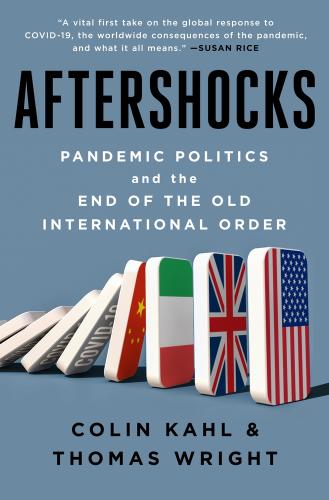
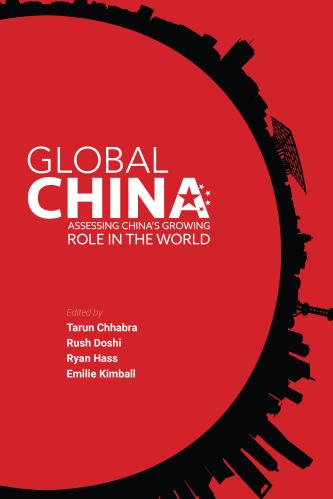
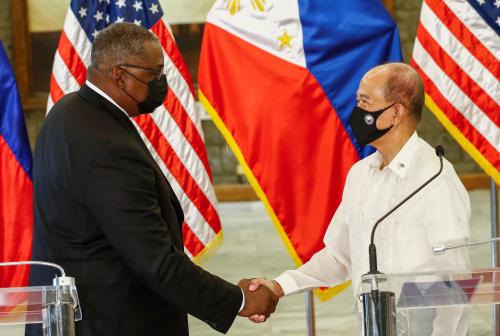
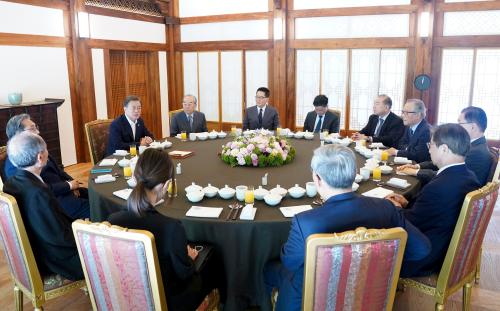
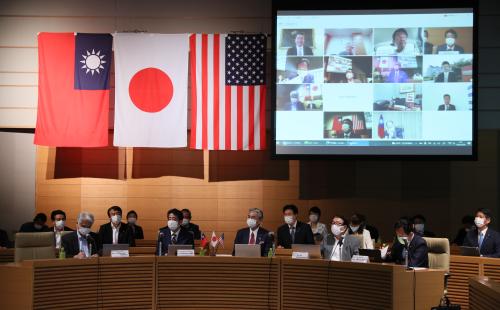


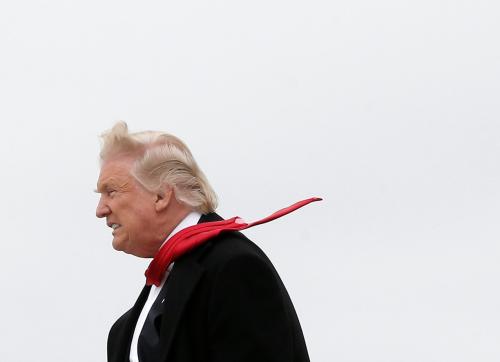
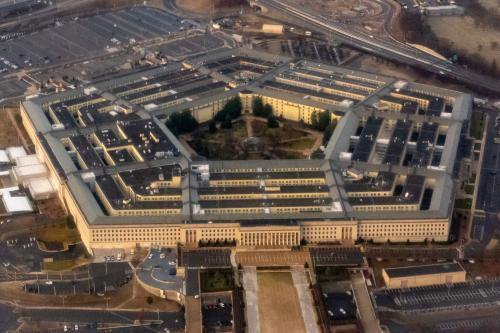
Commentary
Will Asia buy into the Summit for Democracy?
December 1, 2021